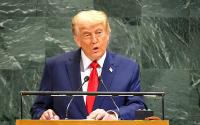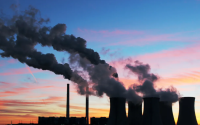23 January 2008
On top of a 20% target for cuts in emissions not part of the trading sector, Denmark will have to double its share of renewable energy by 2020.
 Denmark is facing one of the toughest challenges of all |
Environment Minister Connie Hedegaard told the BBC News website the targets were "rather harsh" and the emissions target in particular would be a "very, very tough burden".
She wanted to know how the commission had come to the figure of 20% when Germany (14%) and the UK (16%) were being asked for smaller cuts.
Ms Hedegaard said the problem was that a great deal had been done to improve domestic heating, so the main areas the government would have to look at were transport and agriculture.
She said Denmark had doubled the share of renewables in energy use since 1997 and suggested that Brussels should be careful about rewarding other countries for their inaction.
Like Denmark, Sweden feels hard done by. It has the highest share of renewable energy consumption across the EU (40.8%) and is being told to increase that to 49%. Its carbon cut is also among the highest at 17%.
Prime Minister Fredrik Reinfeldt said Sweden was "well-placed" to meet the targets and told reporters "we plan to take on a leadership role".
The view from the Confederation of Swedish Enterprise was less compromising. Its chief executive, Urban Backstrom, was quoted as saying: "The government needs to negotiate down the Swedish targets... we have not been given credit for the work we've already done."
Environment Secretary Hilary Benn described the commission's package as "a message of hope".
He said that what had been announced was very ambitious and it was going to be "quite challenging for a number of member states, including the UK".
 Mr Benn says the UK will play its part, if everyone else does |
"That increase in renewables (from 1.3% to 15%) is going to be a big step up from where we are now but we're confident that we can do it. We'll have to work very hard on it."
The Confederation of British Industry (CBI) welcomed the report and said business was "willing to meet the challenge". Director general Richard Lambert called on the commission to follow through its plan for free allocation of emissions permits to vulnerable sectors of industry.
The Campaign to Protect Rural England warned the government not to sacrifice the quality of the countryside to meet targets to provide biofuel for cars.
The EU's biggest economy faces a steep increase in the share of renewable energy it produces (from 5.8% to 18%). And Economy Minister Michael Glos fears jobs could be at risk from the 14% target to cut CO2.
"We really don't need this plan to reduce carbon dioxide emissions, it will destroy jobs in industries which consume a lot of energy," he said.
"We don't want the European Commission to dictate the rules to us."
But Environment Minister Sigmar Gabriel was happier. "It is very balanced, economically viable, very courageous and an ambitious plan for the protection of the climate," he said.
Irish Prime Minister Bertie Ahern was broadly supportive of the proposals. In a statement, he said: "The approach signalled by the commission raises very serious economic and social issues for Ireland, and requires very careful consideration."
Dublin said its proposed 16% target for final renewable energy consumption was "broadly in line" with its own aims.
But the government was more cautious about the proposed 20% cut in all of the Republic's greenhouse gas emissions, both those covered by the emissions trading scheme and those in other sectors of the economy.
It questioned the use of Ireland's gross domestic product in calculating the target, reminding the commission of its population growth, large agriculture sector and what it termed its "infrastructural deficit".
Ecology Minister Jean-Louis Borloo was upbeat about his country's target of a 14% cut in CO2 and increase in renewable energy share (9.5%-23%).
In a statement he said France "will maintain its position as a leader in the fight against climate change, and will in 2020 become the most sober carbon-emitting economy in the European Union".






